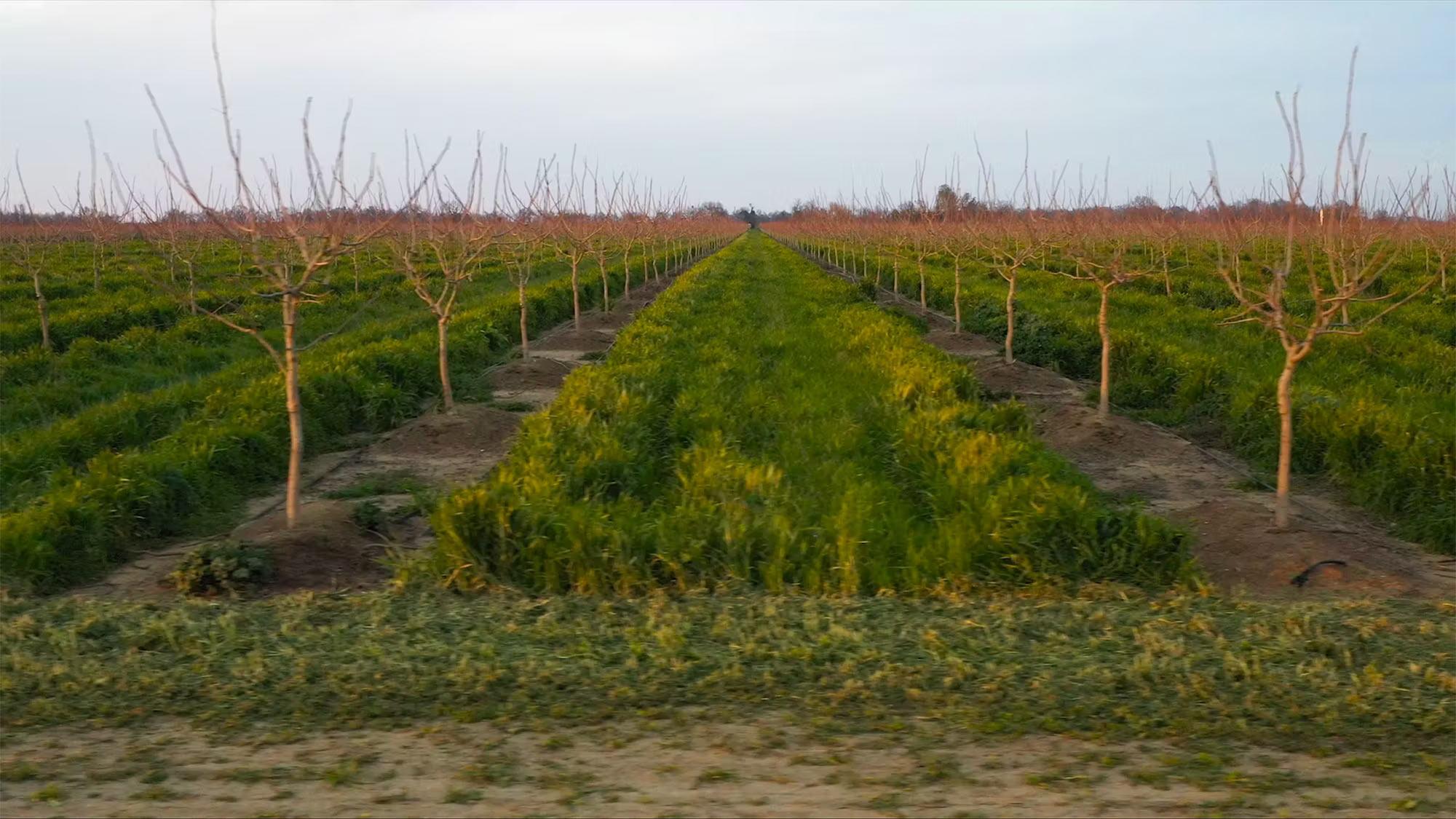On a warm February afternoon, Kirk Pumphrey walks down his rows of almond trees at Westwind Farms in Yolo County. He notices the buds on the branches have already sprouted pink. It worries him. The earlier the trees bloom, the more likely winter frost will damage the nuts. Early blooms are occurring more often as higher temperatures from climate change stimulate plant growth.
California’s warming climate also means thirstier trees and an increasing reliance on groundwater, especially during drought. UC researchers found that farms pumped 27% more water from aquifers last year compared with 2019.
But Pumphrey has tapped 5% less water from these sponge-like underground stores of water in the past year, before the state ended its driest three-year period on record. He’s managed to save water in part by using a type of precision metering called pulse irrigation. Sophisticated sensors predict when the trees need little pulses of water, just enough to replace the water they lost to the atmosphere the previous day.
“It’s the difference between drinking from a firehose or having a glass of water,” Pumphrey said.
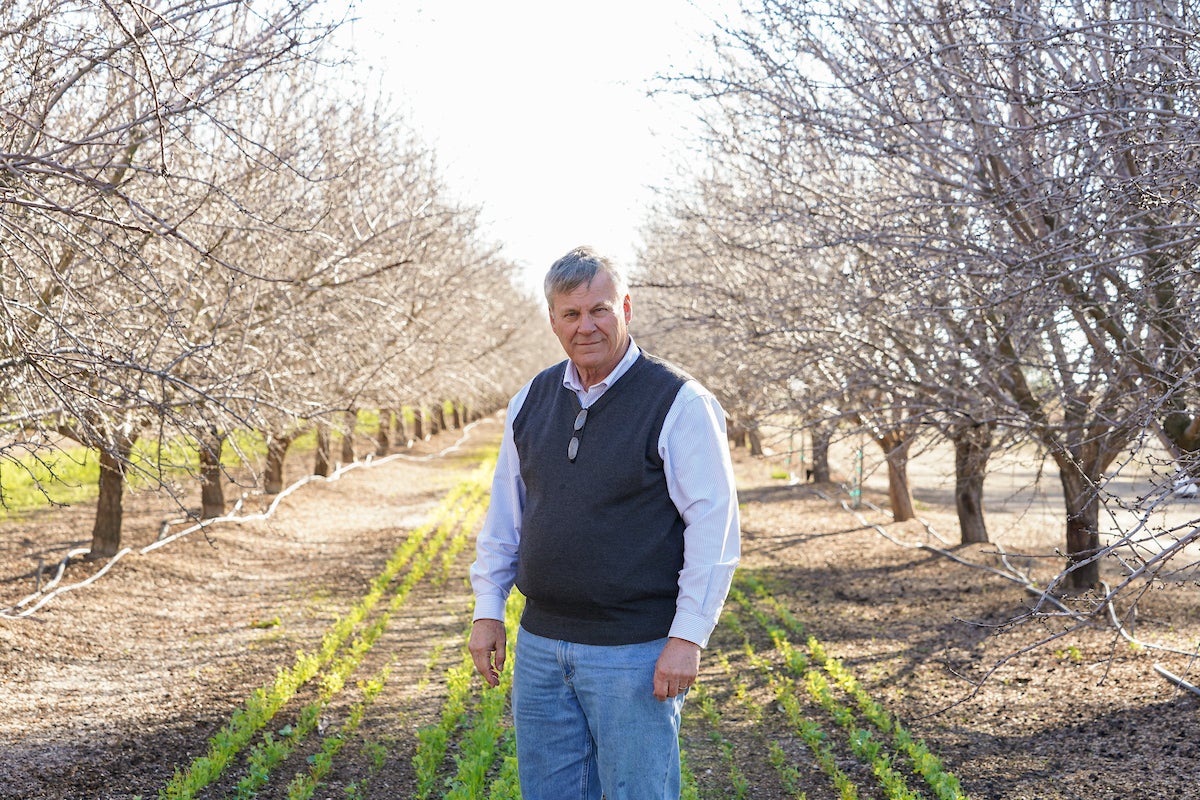
Pumphrey’s orchards have become a proving ground for UC Davis scientists at the Agricultural Water Center to test technologies and techniques designed to help farmers conserve groundwater. The center’s goal is not only to alleviate overpumping — mining groundwater faster than it is replenished — but also to help California remain the most productive agricultural state in the nation.
California drought leads to groundwater shortage
“Groundwater is very important to the sustainability of our food systems,” said Isaya Kisekka, director of the Agricultural Water Center and an associate professor of hydrology and agricultural water management in the UC Davis Department of Land, Air and Water Resources, and Department of Biological and Agricultural Engineering. “If everyone who is irrigating started to pump groundwater without limitations, it would be a race to the bottom. The water would run out, and we will not be able to produce the very nutritious and unique foods that we produce in California.”
Aquifers provide nearly 40% of the water used by the state’s farms and communities. During drought, they provide nearly 60%.
Overpumping has caused lands to subside or sink, reduced water quality and resulted in higher energy costs, from pumping at greater depths. It’s dried up some wells, leaving some communities without clean sources of drinking water.
In the San Joaquin Valley, where most of the state’s food is grown, California overpumps more than 2-million-acre feet of water a year, said UC Davis hydrologist Thomas Harter, a distinguished professor in the Department of Land, Air and Water Resources. An acre-foot is enough water to cover an acre of land a foot deep.
“With the megadrought that we are experiencing, even with the rains this winter, that problem has been exacerbated and probably extended to other places in California,” Harter said.
State law now requires managers of the most overdrawn aquifers to bring those basins into balance by 2040. UC Davis researchers are helping farmers adapt.
New technologies to promote groundwater sustainability
Pumphrey, who relies on groundwater, is using the new pulse irrigation technology on all 160 acres of almonds, instead of irrigating them twice a week.
Patrick Brown, a distinguished professor with the UC Davis Department of Plant Sciences, said it’s a simple concept: Just feed the trees when they need it.
“The analogy is if you had a pig farm, you wouldn’t put all the food and all the water down at the beginning of the year and hope it was there at the end. You feed according to the hunger. Trees are not any different,” Brown said.
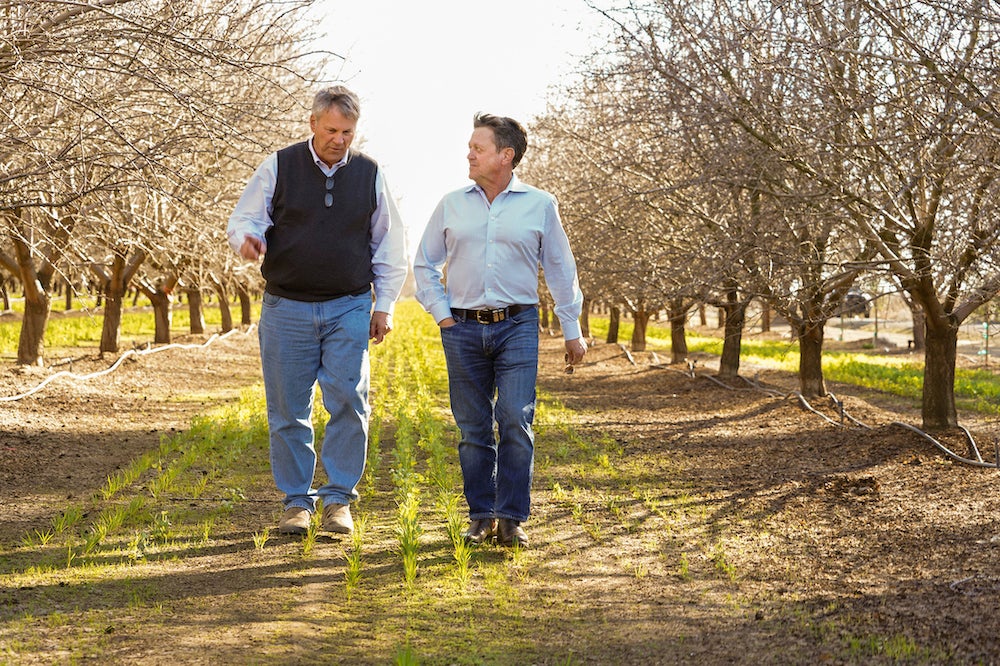
Brown is working with Pumphrey on another way to quench the trees’ thirst that requires no water. Mulch, a mixture of soft and hard almond hulls, covers the ground beneath the trees. Most growers sell the potassium-rich hulls as cattle feed. But by putting it on the ground, farmers are not only feeding the trees but also saving water.
Pumphrey kicks over the top layer of mulch under his trees to reveal dark, moist soil underneath. He said the mulch helps stop surface evaporation.
“You can come out here on a 110-degree day and do this same thing and it will look just like that,” he said.
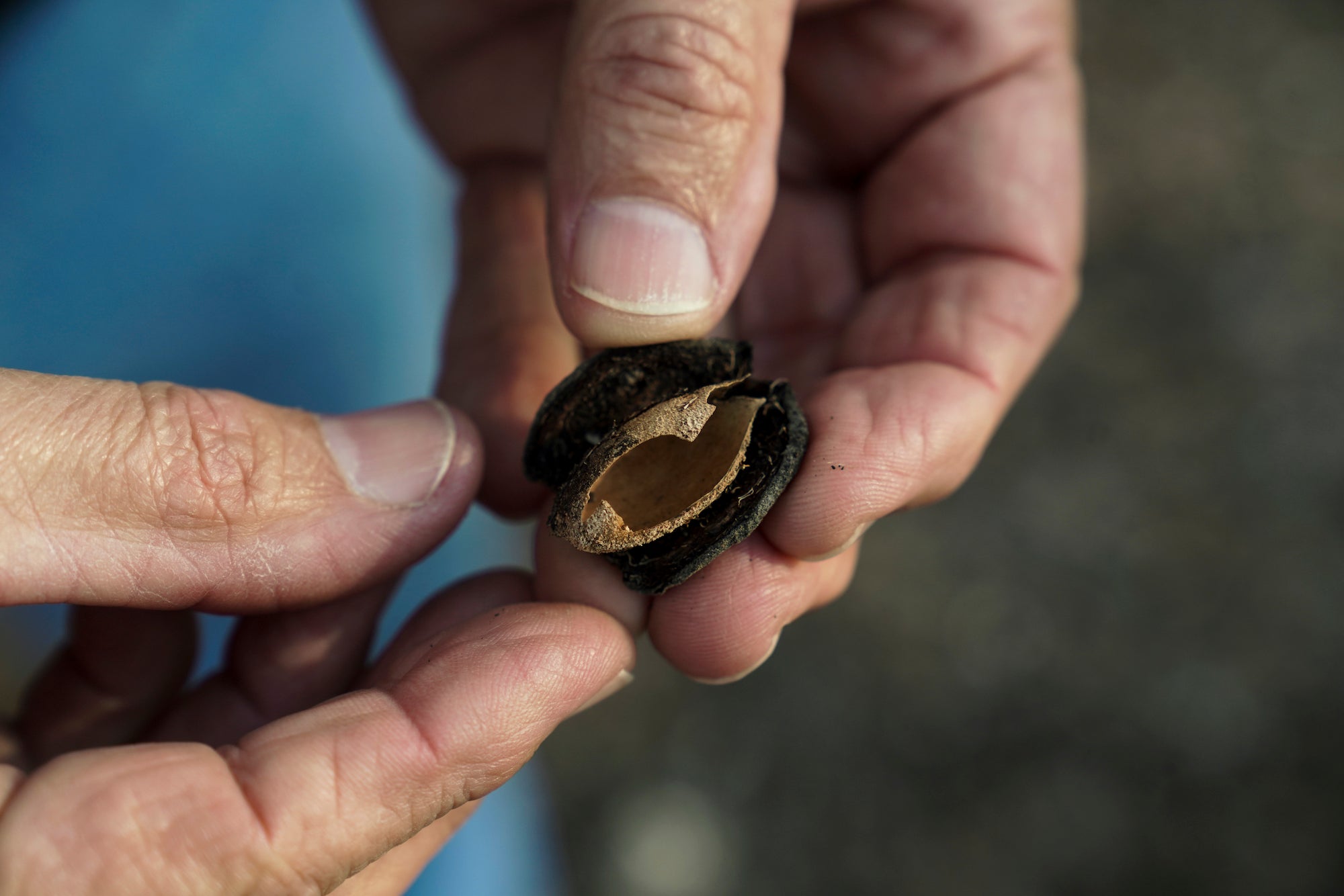
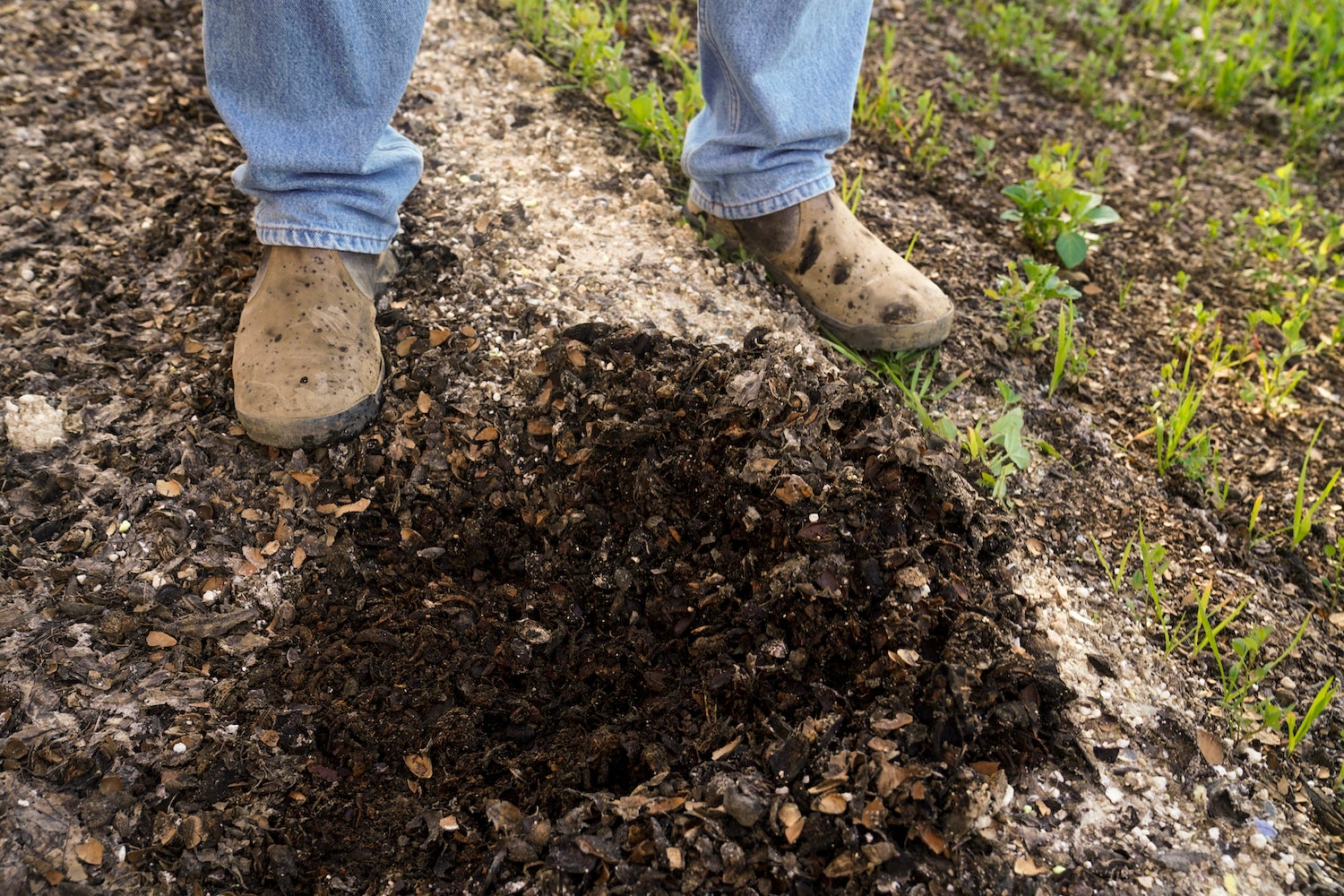
Mulch may not help some growers. When almond trees are harvested, nuts fall on the ground and machines sweep them up. With mulch on the ground, growers risk contaminating the nuts. But Brown is working with Pumphrey on another project to harvest almonds off-ground.
A new machine catches the nuts and recycles the hulls on the orchard floor. The only catch: Farmers must buy the new equipment. But Brown said growers might have a financial incentive. Big buyers of almonds are starting to ask farmers to adopt newer, more sustainable technologies.
Cover crops improve water holding capacity in nut orchards
This winter’s rains have provided a perfect opportunity for an experiment at another nut orchard, just 12 miles away from Pumphrey’s farm.
Nick Edsall, the orchard manager for Bullseye Farms, walks among rows of pistachio trees. Winter cover crops, including knee-high green grasses, vetch and radishes flourish between the rows of trees. Edsall reaches down to pull up a Daikon radish the size of a softball.
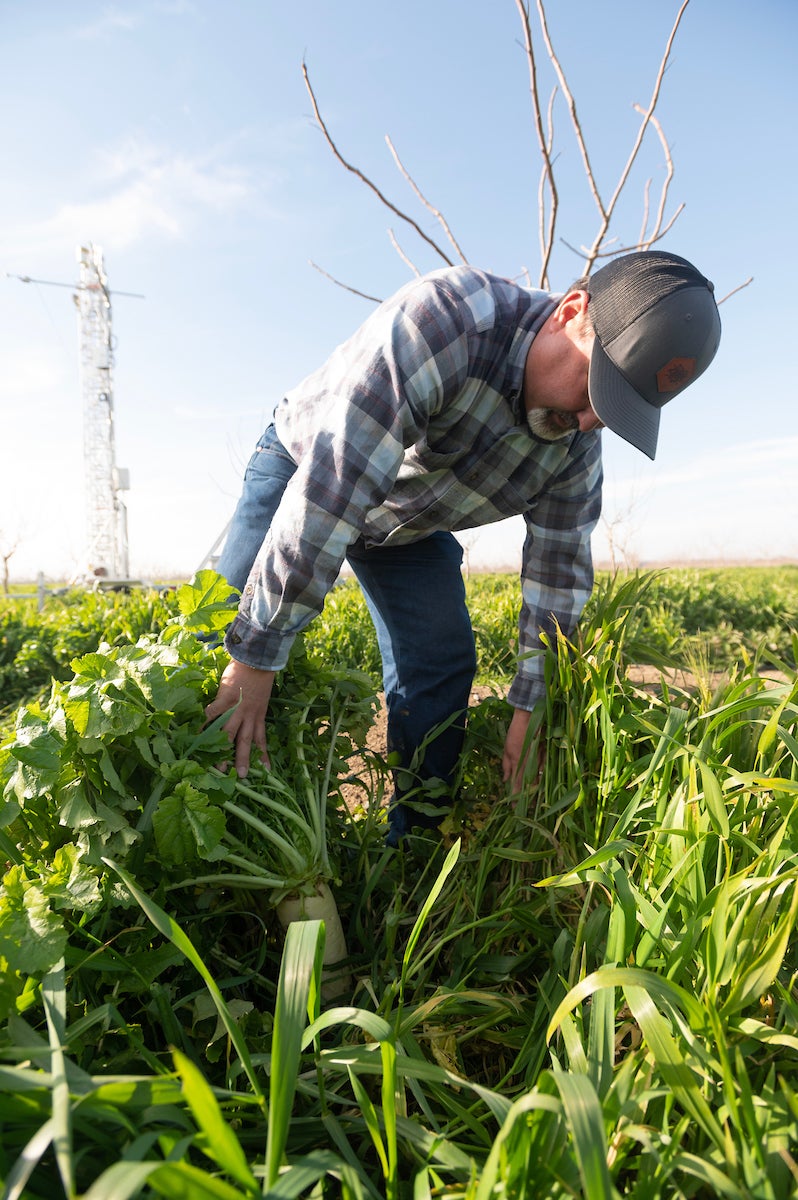
“It opens giant pores in the soil,” Edsall said. “It’s doing its job.”
Those giant pores allow rainwater to seep into the ground and help recharge the aquifer, said UC Davis’ Kisekka, who is using high-tech equipment, including satellites, to monitor soil moisture and groundwater in Edsall’s orchard.
“If you have cover crops like this, you’re going to improve infiltration. You’re going to improve soil structure, which is going to improve water holding capacity,” Kisekka said.
Cover crops grow on about half of Bullseye’s 5,000 acres of orchards. Edsall said he planted them several years ago to fix a high magnesium problem in the soil that was causing it to crack. Nuts that fell in the cracks couldn’t be harvested.
Since then, he’s seen other benefits. The ground crops are attracting pollinators and other beneficial insects and preventing weed growth and water evaporation.
“With the ground cover and the roots reaching deep into the soil, when we get a rainfall instead of it running off the field, it runs into the soil,” Edsall said.
During drought, Edsall said he relies solely on groundwater. He’s seen the demand for it increase as more growers plant permanent crops in the region. “Without any surface water, we’ve been running low. Every year we’re just crossing our fingers hoping we don’t run out of water,” he said.
As part of the experiment Edsall is doing with the UC Davis Agricultural Water Center, he has intentionally left a section of orchard with no cover crops. Even with this winter’s procession of atmospheric rivers, water did not seep deep into the soil there.
“Where we don’t have anything planted the water runs to the end of the field and pools and puddles and it eventually either runs into a drain or it sits on the field for multiple days to weeks,” he said.
Edsall said a lot of growers are hesitant to plant cover crops because they also require water. Like any additional crop, they also require more labor.
Cover crops promote soil health and carbon sequestration
Edsall is hopeful UC Davis researchers can provide some solid data to discover if cover crops save water in the long run and if they have other big payoffs, such as increasing soil moisture and health, recharging groundwater and even storing carbon in the soil.
Kisekka said the satellite images he’s taken of Edsall’s orchard after a series of atmospheric rivers show promise.
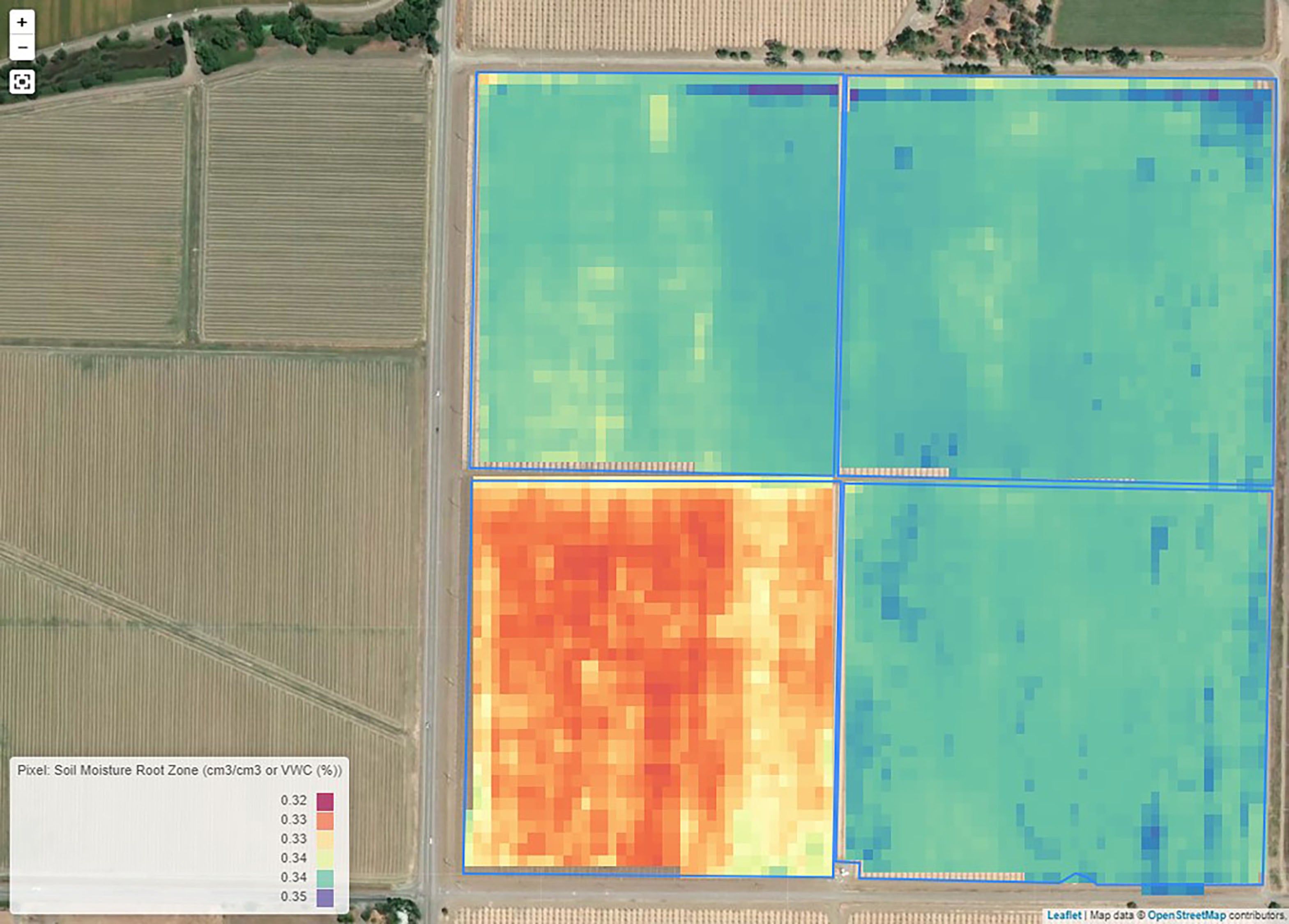
“I could see a very clear difference between the block in this orchard that are cover cropped and the block of the orchard that are not cover cropped,” he said. Satellite remote sensing shows the block without cover crops has 1% less soil moisture in the root zone.
One of the goals of the experiment is to improve satellite algorithms so water managers can measure water use more accurately in California.
Matt Roby, a research scientist with the U.S. Department of Agriculture, is collaborating with Kisekka. He’s using a tall structure, called an eddy covariance flux tower, to measure evapotranspiration, or how much water is lost from cropland to a thirsty atmosphere. It also measures the carbon dioxide exchange in the ecosystem.
“Based on changes in the flow of those gases, we can determine if carbon dioxide is either taken up or released from the landscape and how much water is released into the atmosphere,” he said.
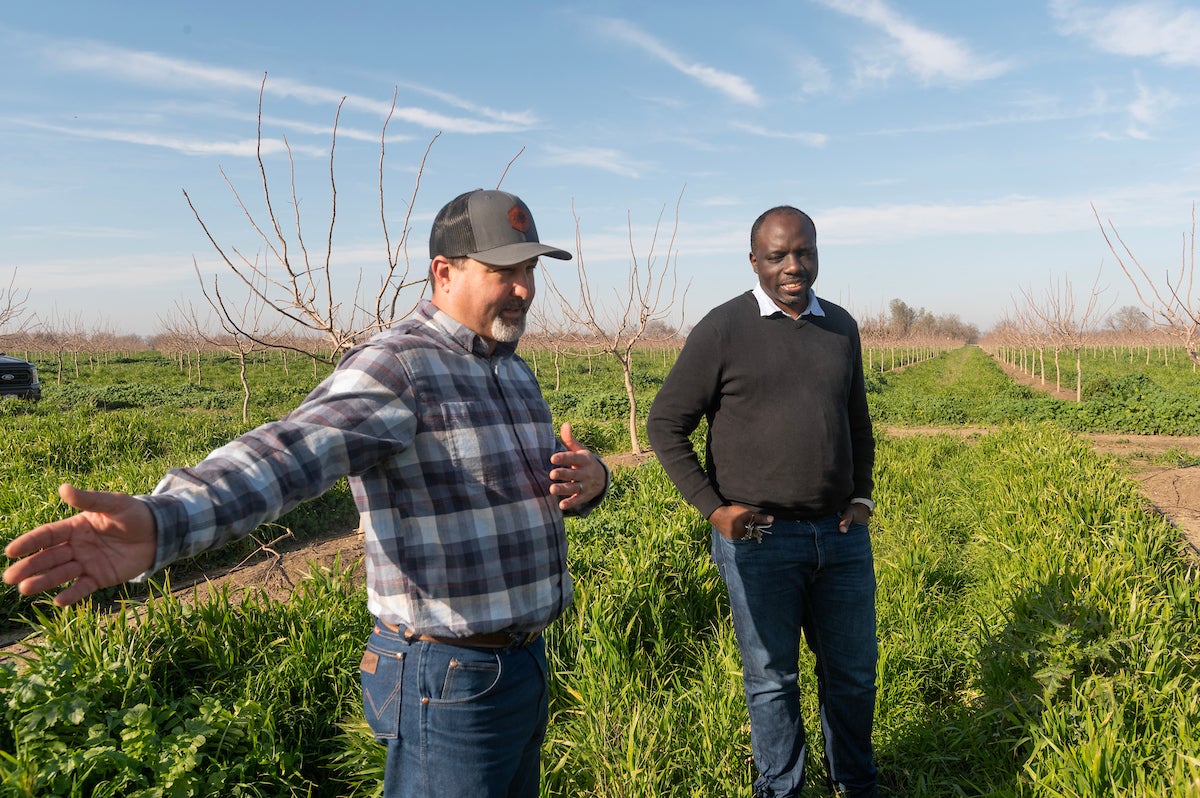
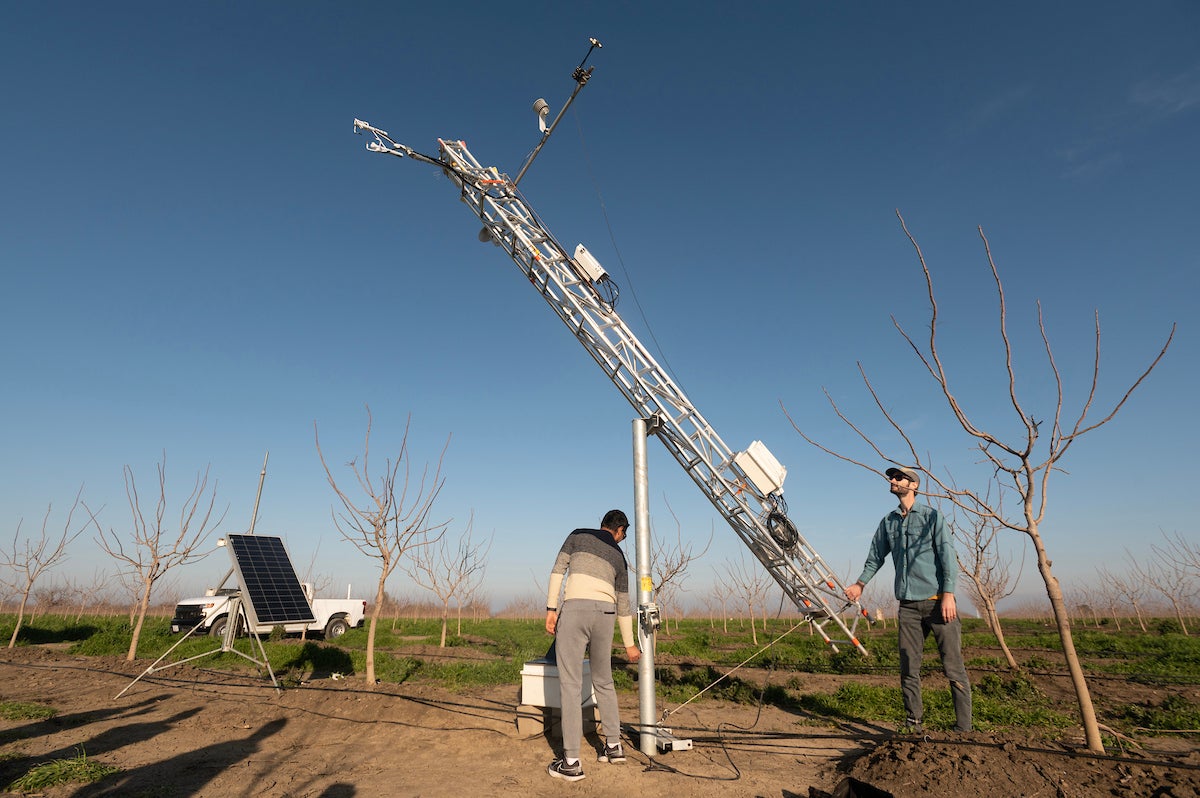
Farms typically emit more greenhouse gases than they store. But these cover crops could sequester some of the carbon. Cover crops could also lessen groundwater overdraft. Growers can use water stored in the soil first and delay irrigation.
Cover crops aren’t a panacea for California’s groundwater woes. Kisekka said farmers may have to think twice about how cover crops could impact their water balance. While the Sacramento Valley, home to Bullseye and Westwind farms, receives an average of 17 to 18 inches of rainfall a year, the southern San Joaquin Valley averages only 7 inches of annual rainfall. Kisekka said growers could still plant cover crops but may have to terminate them early so they don’t compete for water with other crops.
Mallika Nocco, an assistant professor of Cooperative Extension in soil-plant-water relations, is studying whether a new cover crop called Oakville bluegrass might be better suited for the southern San Joaquin Valley.
“It’s been engineered for places like California, and it doesn’t need that much water so it’s not going to compete with a cash crop for water,” she said. “It’s a great example of a new solution for how a cover crop could work in a more arid climate.”
Using California farms to recharge aquifers
Climate change is expected to bring not only more intense drought but also more torrential downpours like California has had this winter. Harter and other colleagues at the UC Davis Agricultural Water Center are examining the benefits of funneling excess water to farmlands to recharge groundwater.
“The agricultural landscape is the largest place in California where we can do managed aquifer recharge,” Harter said. “We need to figure out how to do that recharge in a way that minimizes impacts to crops, but also in ways where we’re not sending agricultural fertilizer or pesticides down to groundwater.”
Significant hurdles exist. Not all soil will allow water to seep into the aquifer, and diverting water from rivers or creeks could unleash an environmental and water rights legal battle. California Gov. Gavin Newsom signed an executive order this year that temporarily eased permitting requirements to divert water to farmlands for recharge.
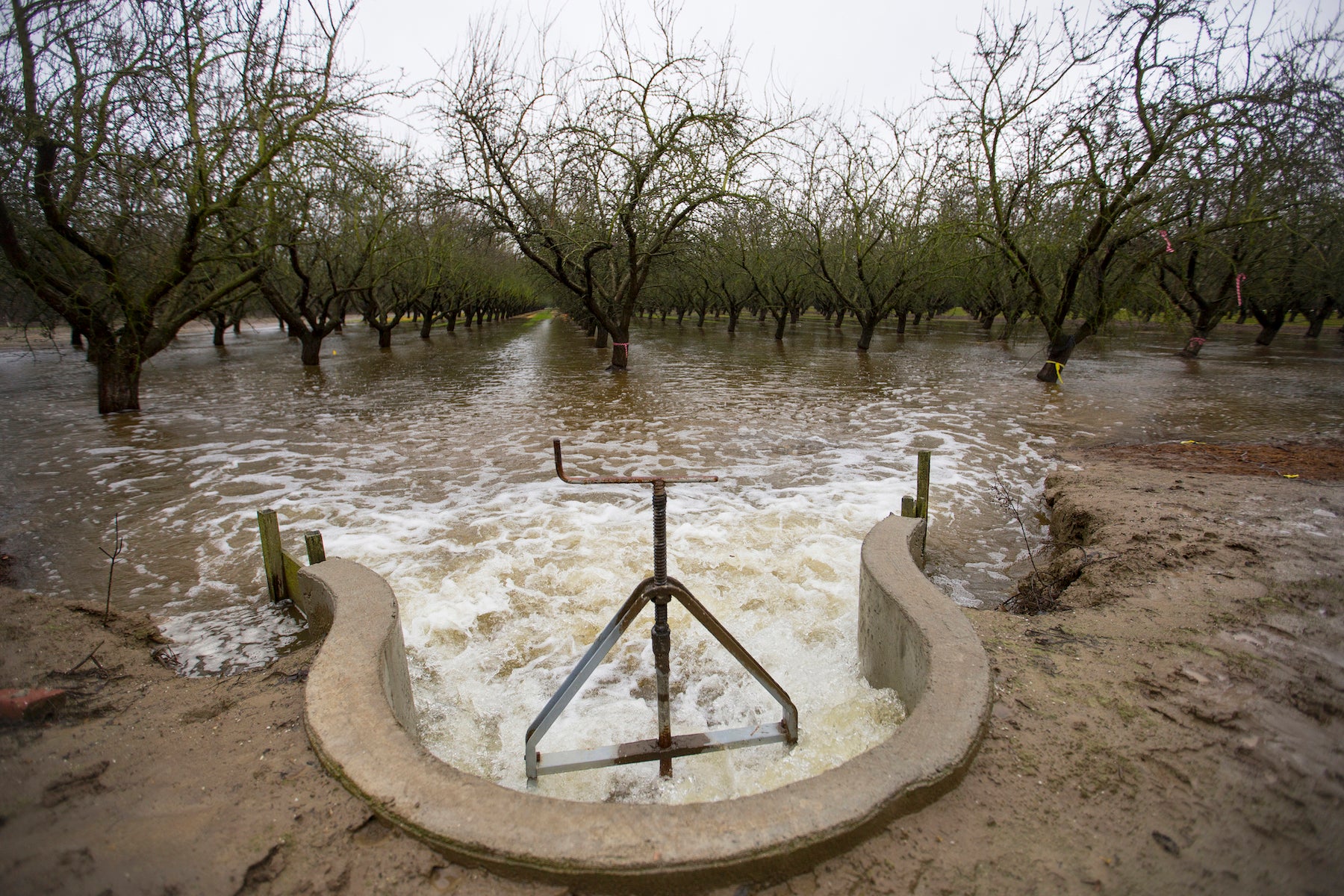
UC Davis groundwater hydrologist Helen Dahlke, with the Department of Land, Air and Water Resources, told the Los Angeles Times that it’s a step in the right direction. The regulatory system, she said, should “strike a balance between maintaining needed river flows for the environment and replenishing aquifers.”
Dahlke has examined how almond trees, alfalfa and vineyards respond to floodwaters, to determine how best to recharge groundwater without waterlogging crops.
Even if the state succeeds with managed aquifer recharge, Harter said California might only recover 20% to 40% of the groundwater lost every year, based on targets outlined in Newsom’s water supply strategy. Farms and communities will still need to use less.
Harter and Kisekka are optimistic about California’s resolve to achieve sustainable water use.
“The challenges are great,” Kisekka said, “but also the advances in science and technology make me hopeful that we can continue to produce nutritious food that we all need while making sure we’re creating minimum impacts on the environment.”
Related Stories
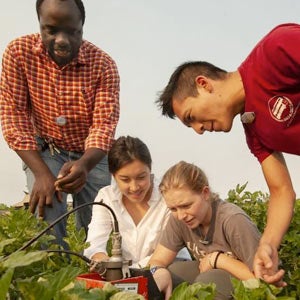
UC Davis to Lead Groundwater and Irrigated Agriculture Sustainability Study
The effort will develop ways to minimize risk from climate extremes for southwest growers.

Professor Recognized for Advancements in Microirrigation
The American Society of Agricultural and Biological Engineers honored associate professor Isaya Kisekka with the Netafim Award for Advancements in Microirrigation, recognizing excellence in research, development, extension, education or industry.
Media Resources
Media Contact:
- Amy Quinton, News and Media Relations, 530-601-8077, amquinton@ucdavis.edu
Press kit of images for download
